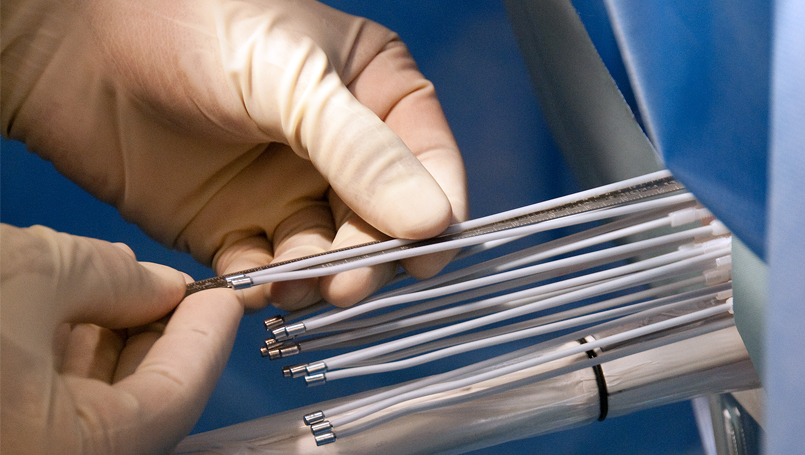Monday, March 21, 2016
 Beaumont researchers to test one-day, HDR radiation outpatient procedure
Beaumont researchers to test one-day, HDR radiation outpatient procedureResearchers at Beaumont hospitals in Royal Oak and Troy are seeking men with low and intermediate risk prostate cancer to participate in a study to determine the effectiveness of a one-time, high dose rate radiation treatment. The outpatient treatment is called single fraction HDR brachytherapy.
“For some patients with prostate cancer, high dose rate, or HDR, brachytherapy is a good option. Presently, two separate minimally invasive outpatient procedures, usually performed two weeks apart, are considered standard treatment for low to intermediate risk patients,” said Daniel Krauss, M.D., study investigator and radiation oncologist, Beaumont Hospital, Royal Oak.
The one-time HDR treatment is being studied by Dr. Krauss, as “definitive therapy,” meaning it would be the only treatment a patient needed to treat their cancer.
According to the American Cancer Society, nearly 220,000 American men will be diagnosed with prostate cancer this year. After skin cancer, prostate cancer is the most common cancer diagnosed nationally among men. The prostate is part of a man’s reproductive system.
“Our research team recently presented the preliminary results of a similar study at the national meeting of the American Society for Therapeutic Radiology and Oncology,” explained Dr. Krauss. “The outcomes of the first 58 patients treated definitively with the entire dose delivered in a single, outpatient treatment, demonstrated it was well tolerated with few side effects. Follow-up to date indicates promising cancer control rates as well. In the current study, our goal is to further refine this treatment and establish an optimal single treatment dosage.”
Prostate HDR brachytherapy is a procedure that typically takes two to three hours to perform from the time anesthesia is given. Patients usually go home from the hospital the same day. In contrast to permanent seed, or low dose rate brachytherapy, with HDR, no radioactive material is left inside the patient after the procedure. Entire treatment delivery occurs in the operating room under the direct supervision of the radiation oncologist and physics staff to ensure total control and optimal accuracy of the dose. Because the radiation dose is delivered directly from inside the prostate, dose to nearby critical structures such as the bladder and rectum is minimized.
Eligible prostate cancer patients with low and intermediate risk disease include those:
- with small tumors, stage T1-T2b
- no evidence of tumor spread beyond the prostate, such as to lymph nodes or bone
- PSA value less than 15
- Gleason score of 7 or less
Those with a new diagnosis of prostate cancer interested in learning more about the study’s eligibility criteria, should contact Melissa Wienczewski, Beaumont, Royal Oak at 248-551-0736 or Melissa.Wienczewski@beaumont.org. For Beaumont, Troy, contact Beth Mitchell at 248-964-0793 or Beth.Mitchell@beaumont.org. Eligible patients will participate in the study for five years following the enrollment date. Participation will be offered through the Department of Radiation Oncology at Beaumont hospitals in Royal Oak and Troy.
“Our goal is to demonstrate safety, convenience, efficiency and cost savings, without compromising cure rates or increasing toxicity,” said Dr. Krauss. “This procedure allows for prostate cancer radiation treatment in a single day, with return to normal activity levels almost immediately.”
